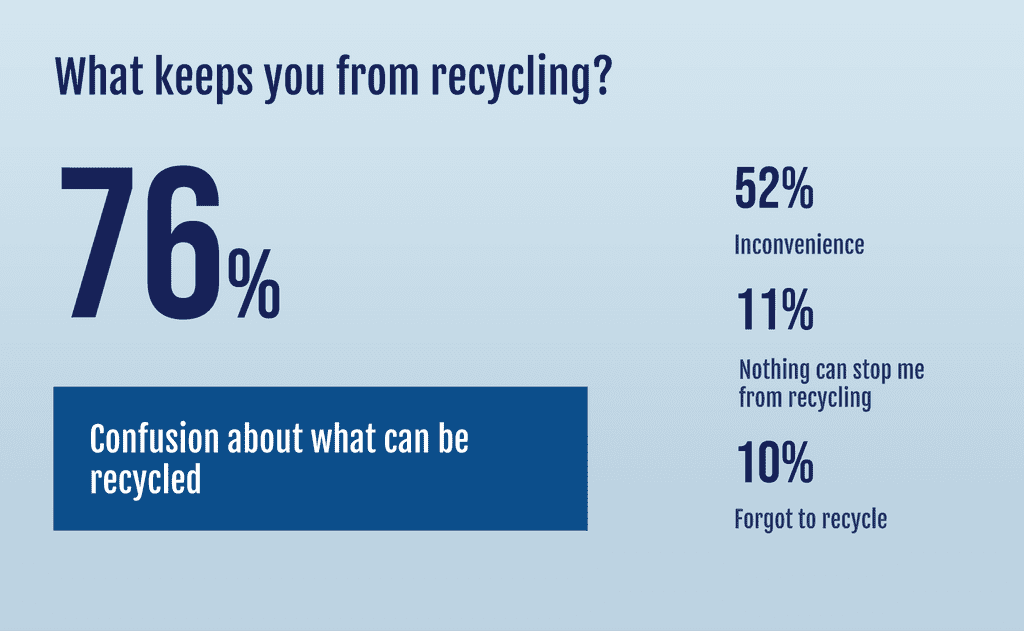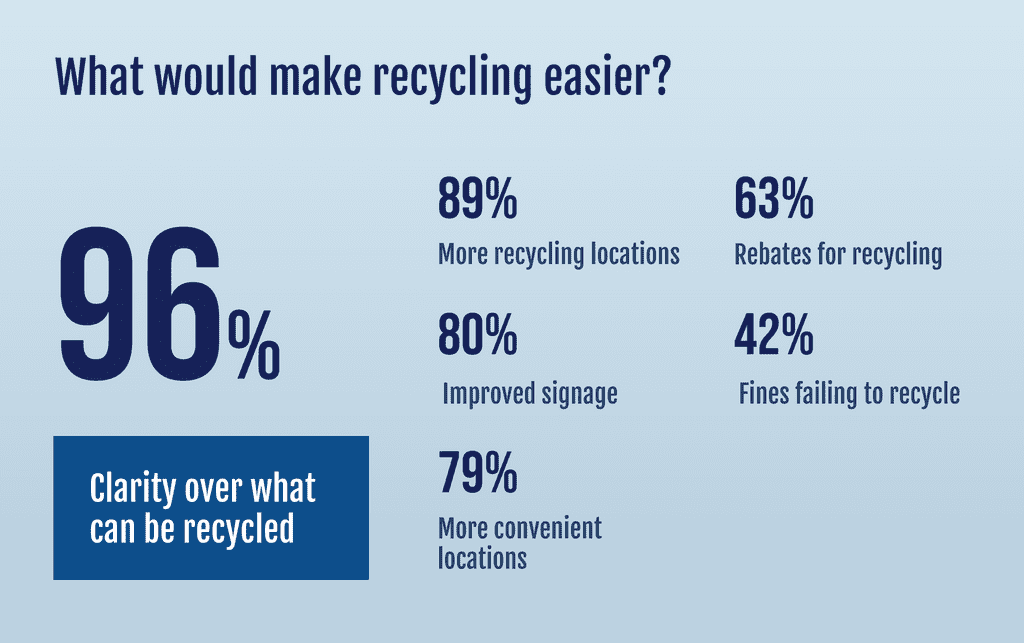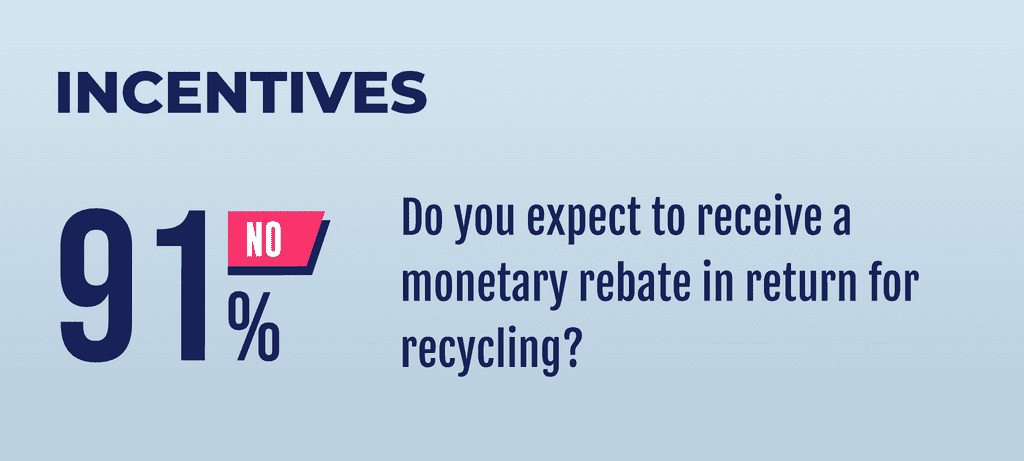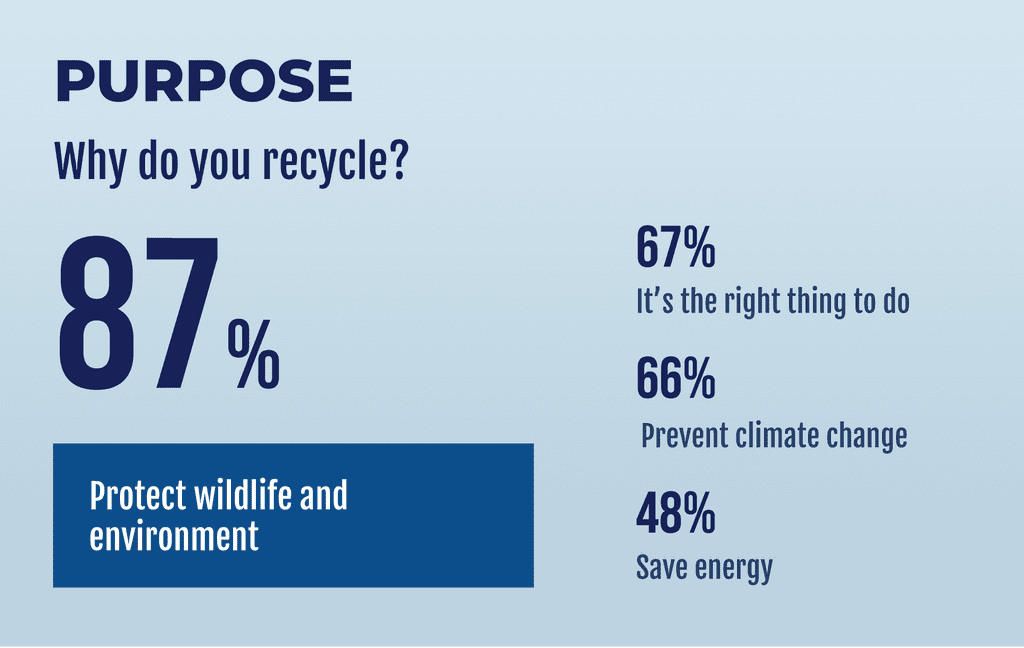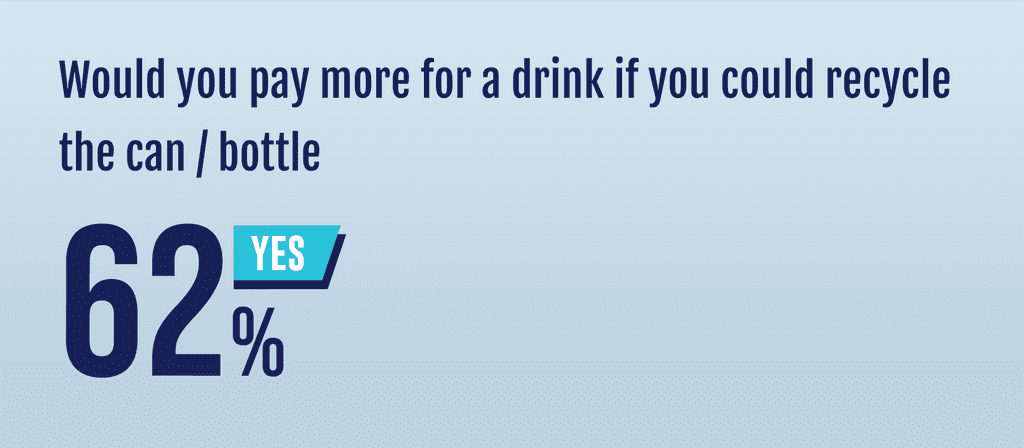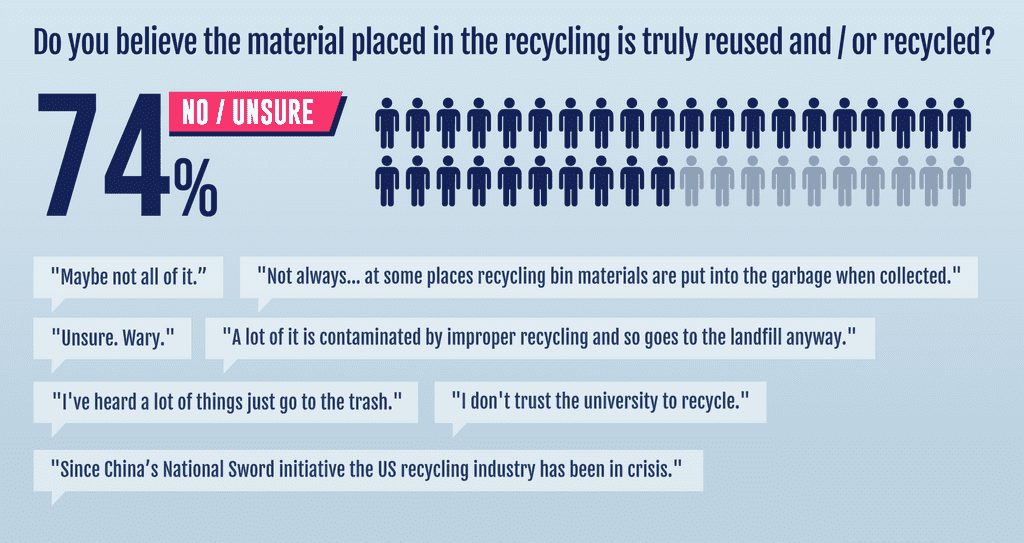sustainability
Reimaging the recycling business
A design-thinking workshop with TOMRA
It’s no secret that planet Earth is in trouble. From images of dead sperm whales washing up on the shores with hundreds of pounds of plastics in their stomach to the “Great Pacific Garbage Patch”—the unbelievable damage humans have caused to our environment is undeniable.
So how did we get here? Plastic, human error, and a recycling system that needs improvement.
Our present-day recycling systems were built decades ago as an after-thought on top of our waste management model and largely rely on consumer behavior to be effective. While there are many players—industrial infrastructures, business models, consumer awareness, collection systems, recycling processes, state rules and regulations—who need to work together to ensure recycling is effective, the biggest burden lies on the consumer.
With 79% of plastic produced annually ending up in landfills or floating in the ocean, perhaps it’s time to revisit our approach, processes, and mindsets about recycling.
The Survey
A long-lasting, sustainable shift relies on the participation of all consumers—but our newest generations will be the key drivers. To explore this idea further and better understand where Gen Z and Millenials stand on this topic, we partnered with the Rhode Island School of Design (RISD) to conduct a research study of 100+ young adults across 22 cities in the United States. The findings challenged many of our common assumptions and debunked 5 well-known myths.
Myth #1: Recycling is easy and everyone knows how to do it.
Have you stood in front of a set of three bins at an airport, office, or other public place and wondered where to toss the empty container in your hand? You’re not alone.
Source: 2019 Consumer Recycling Survey. Piktorlabs and Rhode Island School of Design
Confusion at the bin keeps most people from recycling correctly, including 76% of our respondents, resulting in contamination at the source and impacting 25% of collected materials. This in turn increases the cost of recycling and causes additional waste. 96% of respondents said increased clarity over what can and can’t be recycled would make the process easier and allow them to be more effective in their recycling habits.
Source: 2019 Consumer Recycling Survey. Piktorlabs and Rhode Island School of Design
Myth #2: Monetary incentives persuade people to recycle more often.
The Bottle Bill encourages consumers to return recycled items in exchange for cash. Its success across a growing number of states has influenced the notion that present-day recycling systems must center around this idea of redemption. Our survey results prove otherwise. A whopping 91% of respondents don’t expect to receive money back in exchange for recycling, proving their motivations lie elsewhere—such as protecting wildlife, preventing climate change, and simply because it’s the right thing to do.
Source: 2019 Consumer Recycling Survey. Piktorlabs and Rhode Island School of Design
Source: 2019 Consumer Recycling Survey. Piktorlabs and Rhode Island School of Design
Myth #3: Consumers won’t pay more to help with the recycling process.
Recycling is a resource-intense process. Companies are hesitant to factor recycling into the production of new products, opting instead for non-recyclable materials (to keep product costs low) that could ultimately end up in the landfill. Decision-makers assume consumers won’t pay more for a product that factors in sustainability—but our survey proves otherwise with 62% of respondents claiming they would pay more for a drink that could be recycled.
Source: 2019 Consumer Recycling Survey. Piktorlabs and Rhode Island School of Design
Myth #4: We have plenty of time to fix this.
The concept of recycling is nothing new. We’ve been fighting for better systems to recycle since the 1970s when niche groups championed the idea during the environmental movement. And this passion continues with our newest generations. While some may argue that recycling is a lost cause, our survey shows that most care deeply about the state of recycling and feel a great sense of urgency on the matter.
Source: 2019 Consumer Recycling Survey. Piktorlabs and Rhode Island School of Design
Myth #5: Our current recycling system is efficient.
Many respondents hope to see the positive impact of what they recycle. But today, once the material enters the system, there is no way to know where it ends up. Combined with an alarming increase in environmental degradation, people do not trust the present-day systems—74% of respondents don’t believe the items they place in bins are truly reused or recycled. This skepticism reveals yet another barrier to effective recycling.
Source: 2019 Consumer Recycling Survey. Piktorlabs and Rhode Island School of Design
It’s time to rethink recycling
While no single change will magically increase the efficacy of recycling, a combination of simple solutions could influence the impact of recycling in the near future. Combining today’s vast computing power, blazing network speeds, and intelligent tech with intentional design thinking could open limitless possibilities for efficient, easy-to-use systems.
So, where to start? As industries consider their role in this epic challenge, we see the following opportunities:
1. Design for sustainability from the start. Include sustainability as an essential design consideration for all products and packaging from the inception. Just like functional cost, quality, aesthetics, marketing, and ease of production — sustainability should be a key factor of the product life cycle instead of an after-thought dependent on state rules and user awareness.
2. Decentralize recycling. Create systems that will enable consumers to recycle from anywhere, rather than depending on designated recycling systems (such as the blue bin and Reverse Vending Machines). Modern technology could enable this and turn recycling into a mainstream activity.
3. Make recycling more user-friendly. Recycling systems and processes should be easy for anyone to use. Much of the inefficiencies in the current system are due to human errors caused by lack of awareness and incorrect actions — both of which could be mitigated by improving the usability of the overall ecosystem.
4. Leverage intelligent tech for efficiency. While developed countries continue to stay on top per capita of plastic waste production, developing countries top the charts in poor waste management which contributes to the bulk of the landfill and ocean. This is because most recycling systems were never designed considering both ends of the spectrum. The intelligent tech available today could be leveraged to build smart, usable, and sustainable recycling systems that would cover the complete spectrum.
5. Teamwork. For recycling to be successful, it must become a mainstream activity. This will require the active participation of every stakeholder — policymakers, business leaders, product designers, manufacturers, marketers, distributors, retailers, consumers, recycling companies, law enforcement, etc. Everyone must work together to steer the shift.
Cleaning up our planet is a complex undertaking that requires a fundamental shift in our mindset and approach to sustainability. We need new business models, systems, processes, and policies that are effective on a global scale. This coming decade will see significant innovation in the sustainability space and help increase awareness among consumers, leverage intelligent systems, and influence the usability of the recycling experience.
Design-driven approaches, smart technology, and meaningful participation from our newest generations will help lead us to a cleaner world.
